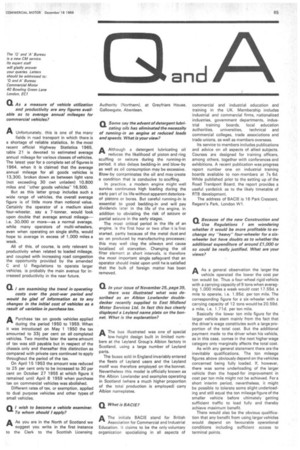a Some say the advent of detergent lubricating oils has eliminated
Page 67

If you've noticed an error in this article please click here to report it so we can fix it.
the necessity of running-in an engine at reduced loads and speeds. What is your view?
A Although a detergent lubricating oil
reduces the likelihood of piston and ring scuffing or seizure during the running-in period, it also delays bedding-in and blow-by as well as oil consumption may be excessive. Blow-by contaminates the oil and may create a condition that is conducive to scuffing.
In practice, a modern engine might well survive continuous high loading during the early part of its life without apparent deterioraof pistons or bores. But careful running-in is essential to good bedding-in and will pay dividends later in the life of the engine, in addition to obviating the risk of seizure or partial seizure in the early stages.
The roost critical period in the life of an engine, is the first hour or two after it is first started, partly because of the metal dust and so on produced by manufacturing processes; this may well clog the oilways and cause localized oil starvation. Changing the oil filter element at short intervals, is therefore the most important single safeguard that an operator should insist upon until he is satisfied that the bulk of foreign matter has been removed.




























































































































